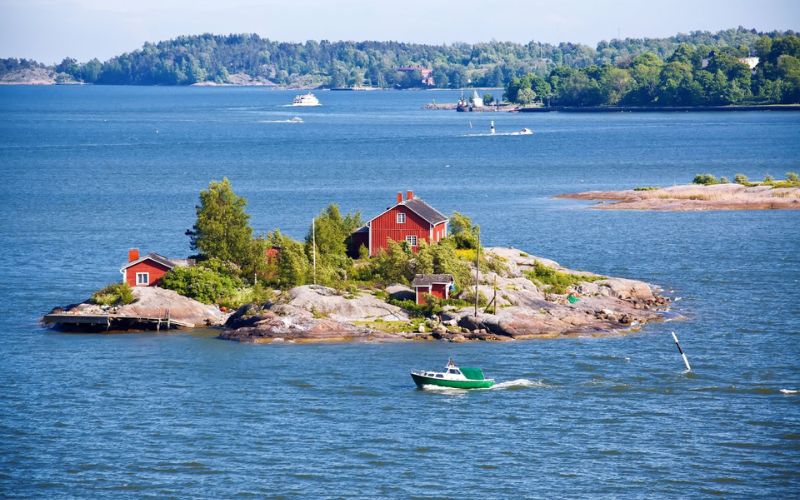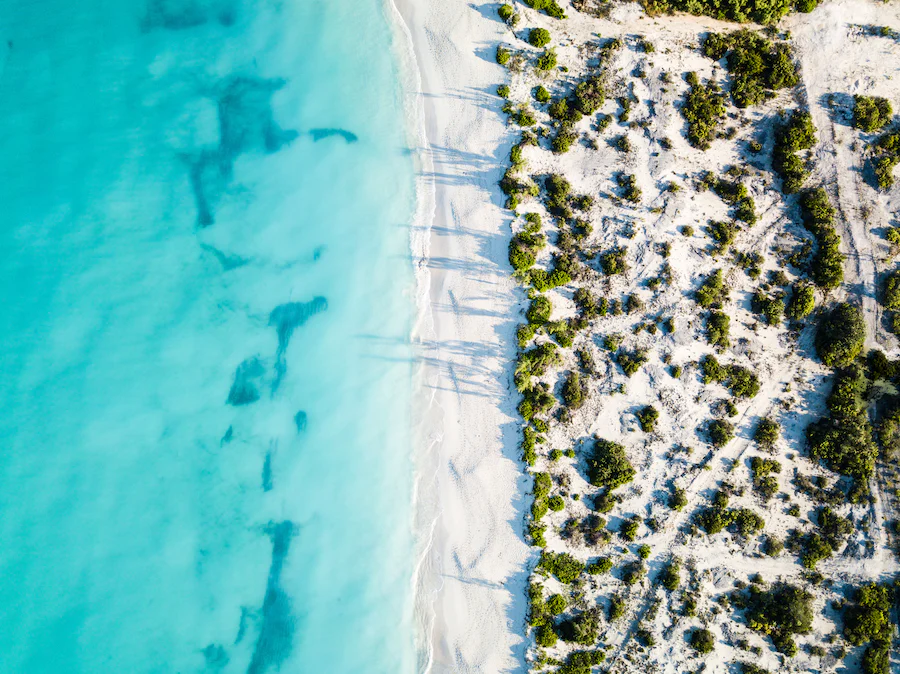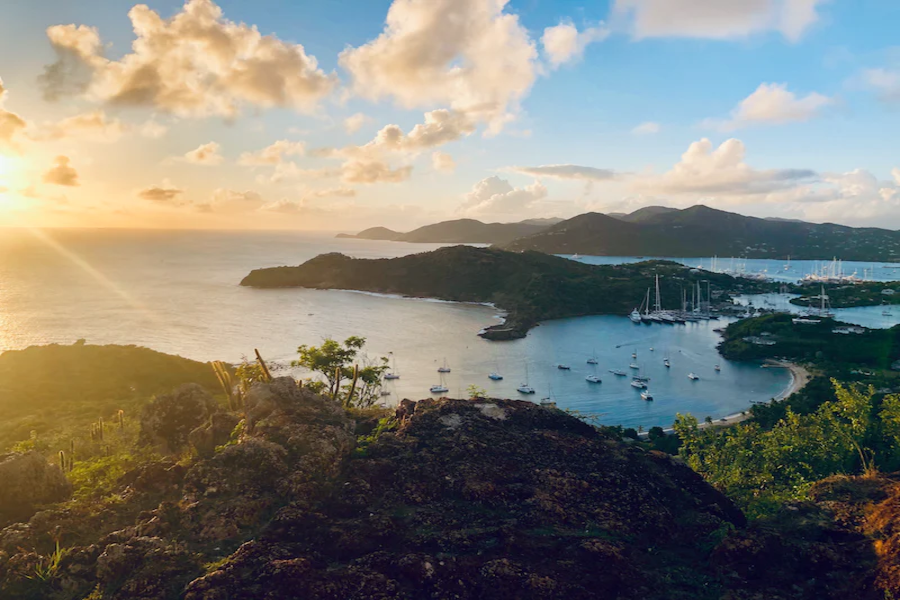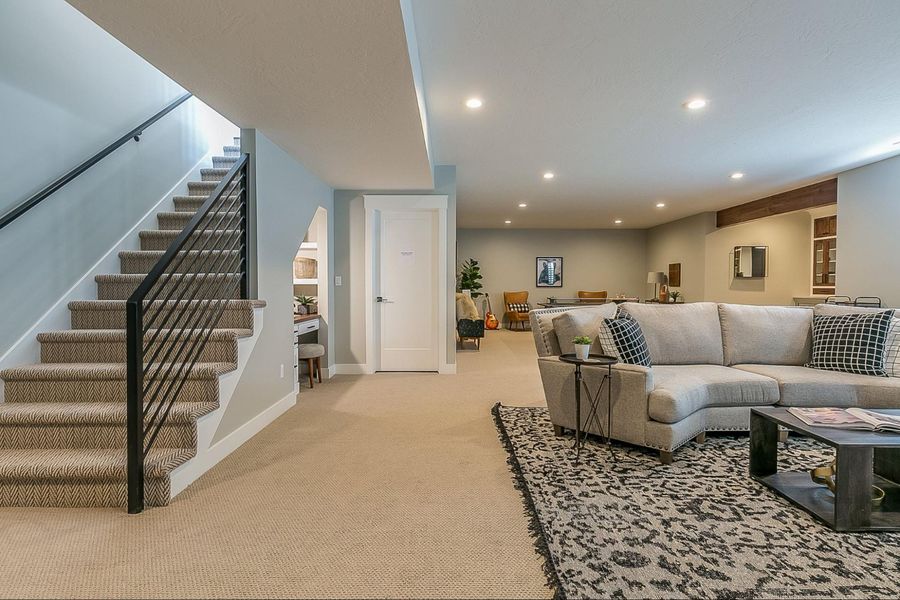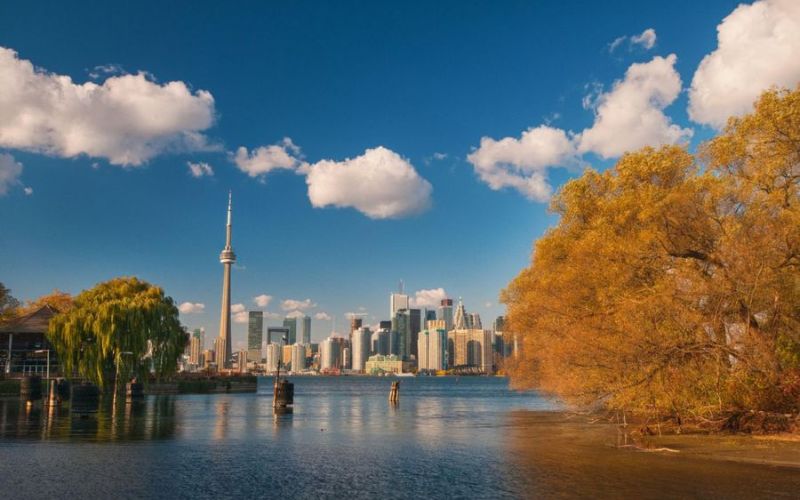When it comes to dreams of relaxation and cottage life, nothing compares to the picturesque cottage on an island. Among Canada’s abundant water are thousands of islands, many of which are home to these island getaways.
If you dream of living island life in Canada, you may be thinking about building your own cottage. And though island cottages make for great photo subjects and are nice to dream about, are they really the relaxing island paradise we imagine, or are they a headache? What does it take to build a cottage on an island in our beautiful country? We’ll outline these questions below.
Choosing the right island
Like I said before, there are thousands of islands in Canada, but they won’t all be suitable for building a cottage on. For one, they need to be the right size. A tiny rock in the middle of a lake will not be suitable to build a cottage on nor will a huge island be an easy purchase financially. There is a middle ground that makes an island good for building.
In addition, your island needs to be relatively accessible. Unless you plan on going completely off-grid, you will likely want to travel to your cottage and bring things back and forth, not to mention building supplies. For example, there are thousands of vacant islands in the north of Ontario that are so remote as to essentially be out of the question for development. The most popular areas for island cottages include Georgian Bay and .
Just how much does an island cost?
Like any plot of land, the price is going to depend on the area, the size, and the features of the property. A small island in the remote wilderness may cost you very little while a larger island in a much more desirable cottage country can run you a lot of money.
A word of warning, however: if you are concerned about money, building a custom cottage on a private island, unfortunately, may not be for you.
Consider what you want to build before you buy
Just because you own an island, doesn’t mean you are beyond the reach of the law. Your build will still need to comply with local regulations and building codes. For example, in many areas, your build will need to be a certain elevation or distance from the water, so if you plan on building, you will need to choose an island that is the right size and shape.

The cost of building a cottage
Just like the land purchase, the cost of building a home is going to depend on the home you decide to build. In general, a new build is going to be comparable in price to a similar resale home. However, in the case of , it will likely cost you a fair amount more and that’s before considering the extra costs associated with actually building on an island.
The process of building on an island
Building on an island is obviously not going to be as simple as building on the mainland. First of all, you’re going to need to find a custom home builder who is willing and experienced to work on this kind of build. These will obviously be less common and you will pay for their expertise.
Transporting building supplies
You also need to consider how your building materials actually get to the island. You will first need to ship your materials, then load them onto a boat or barge, transfer them to the island, and unload them once again. Every step in this process means added complexity, and therefore, added cost and more chances for things to go wrong. You will also have to arrange to have any building equipment transferred to the island and back to shore once the build is done, as well as costs for removing waste after the build.
Once you’ve gone through the effort of transporting all the materials and workers, the build itself should not be too different from a regular cottage build. However, it may be difficult to prepare the land and maneuver large machinery on the island.
One simple way of getting a cottage on an island is to have a prefab cottage that is assembled (or mostly assembled) off-site and then placed on the island. This solves a lot of challenges, but may also mean less options for your finished product.
Setting up utilities
In addition to the actual building, you probably want your cottage to be relatively comfortable, which means you are going to want utilities such as power, heat, plumbing, and internet. Things like water and the internet can be handled on the island directly by a well or a satellite respectively, while things like power and heat are going to take a bit more work.
For power, your main options would be to run power lines under the water, set up a generator, or to set up renewable power sources like wind and solar. Hydro lines will be the most reliable, but they will also be limited by your location and distance from the land and will probably be the most expensive option. A generator will have to be run regularly, will require fuel, and could be somewhat noisy. Finally, alternative energy sources can be unreliable and may leave you powerless when you need it most, but do offer you true off-grid freedom.
Recurring costs
You will also need to consider the recurring costs of island life. For example, if you have propane or natural gas for heat or cooking, you’re going to have to get that refilled every so often, which will be a regular cost. In addition, you will need your septic cleared on occasion, another cost to add on. Both of these features will also rely on their being a local supplier to actually handle the job, otherwise, you may be out of luck.
Finally, you are probably going to need to own a boat if you own a private island and one that is big enough to cart your possessions from shore and reliable enough to work when you need it. You are also going to need to find a marina nearby that can store your boat and may also have to pay for car parking while you are on the island.
Is the island lifestyle right for you?
Once you’ve built the cottage, you are now able to enjoy the pinnacle of private relaxation that most people only dream of. Though, is the island cottage life really all it’s cracked up to be?
Though the lifestyle seems appealing, it won’t be for everyone. There are benefits and downsides to having a cottage on an island and it will be up to you to decide if the benefits outweigh the challenges.
Downsides of an island cottage
For one, your trip up to the cottage is going to be made more difficult without road access because of the extra step of loading your belongings onto a boat and making your way to the island over water. In poor weather, for example, this will add a lot of extra work when all you want to do is sit down at the cottage and relax after a long drive. You will also probably want to have friends or family visit you on your new private island and that means playing taxi as you ferry guests back and forth when they arrive or leave.
Next, you should consider what you will do in the wintertime. It might be possible that you can not access your cottage at all in the winter when the lake freezes, while you may still have to pay for utilities and property taxes. You will also need to cover winter storage for your boat. And, if something goes wrong on the island, you may not be able to easily reach it to fix the issue, which could mean expensive repairs in the spring.
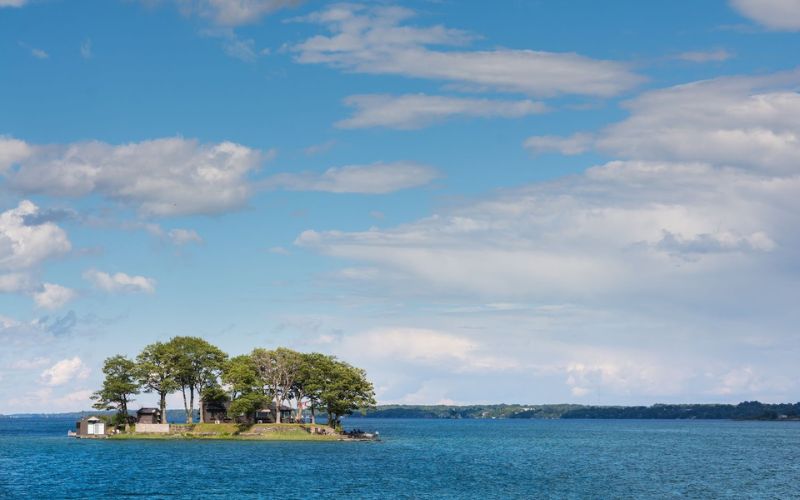
Benefits
Life with an island cottage is going to offer the same benefits as any other cottage. These include a place to get away, a place to enjoy hobbies and activities, a place for families to meet, and a place to potentially retire to or pass down to family.
The biggest benefit of private island life specifically is of course privacy. No one is going to be able to bother you very easily once you reach the shores of your island and this can provide a one-of-a-kind feeling of relaxation and be sheltered from the outside world. You will also be free to enjoy your property in any way you could want and shape the island to be entirely your own.
As an investment
As far as investment prospects go, property in popular cottage countries will always have some value due to their prime location. However, with an island, you are limited in the number of people who can afford or would consider, buying on a private island. It may be a unique idea for a rental property, though there are complications with that as well. Overall, an island cottage does not offer many significant investment benefits over any other cottage but does offer a lot if you simply chose to own it for your own enjoyment.
Corben joined CREW as a relative newcomer to the field of real estate and has since immersed himself and learned from the experts about everything there is to know on the topic. As a writer with CREW, Corben produces informative guides that answer the questions you need to know and reports on real estate and investment news developments across Canada. Corben lives in Guelph, Ontario with his partner and their two cats. Outside of work, he loves to cook, play music, and work on all kinds of creative projects. You can contact Corben at corben@crewmedia.ca or find him on Linkedin at https://www.linkedin.com/in/corbengrant/.


